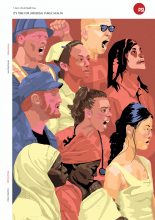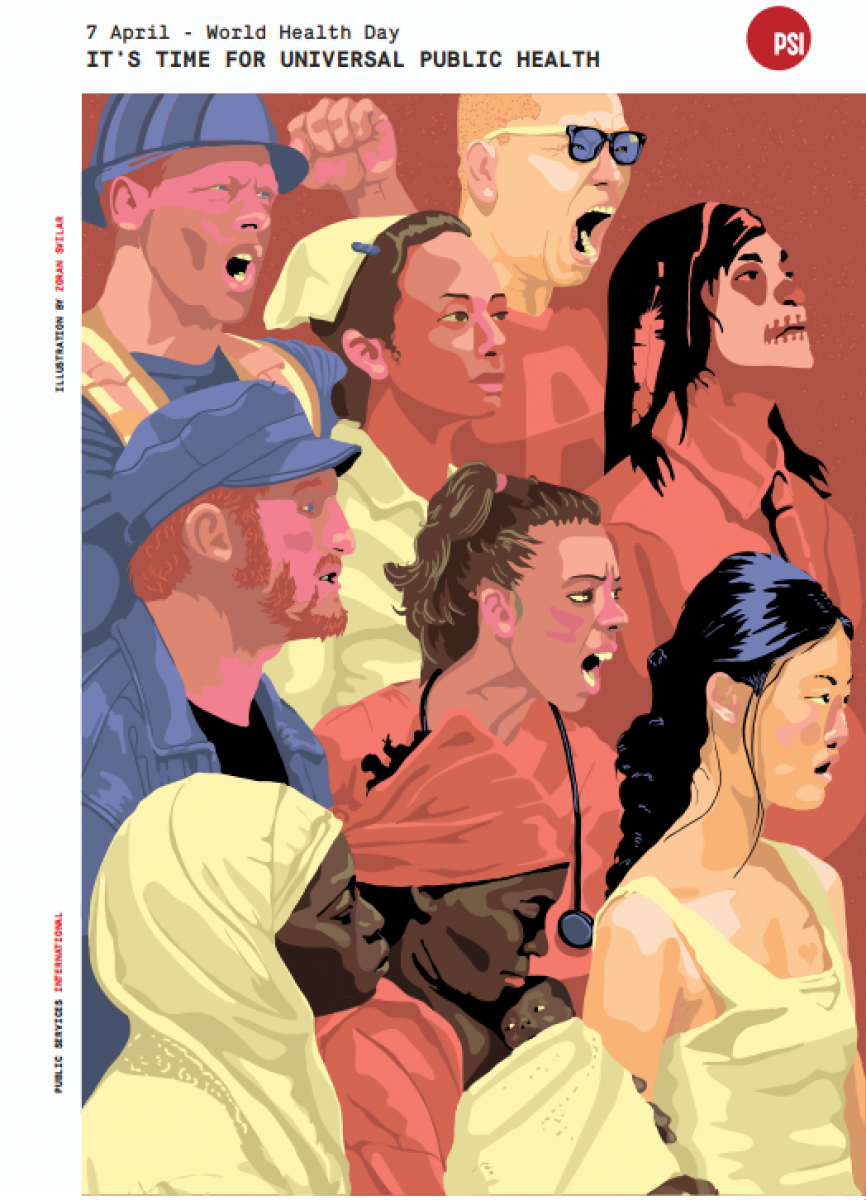7 April - Time for Universal Public Health Care

The WHD’s focus is “universal health coverage” (UHC). The World Health Organization aims to help people better understand what universal health coverage means. Public Services International seizes this moment to call for investment in public health systems.
The PSI General Secretary, Rosa Pavanelli said:
Governments have the sole responsibility to guarantee health as a fundamental human right. The situation globally, and particularly in low- and middle-income countries is very worrisome. It is indefensible for 100 million people to face catastrophic health expenditure every year, in the 21st century. While child mortality is on the decline, there is no just reason why almost 6 million children still die from preventable diseases annually.
Commodification and marketization of health care is a major obstacle to attaining universal health care. Global health multinational corporations, international insurance firms, and big pharmaceuticals play increasingly significant roles in the health sector. They are guided by for-profit interest and consider health and social services as merely an economic sector and one of the fastest growing one at that, worth US$5.6 trillion, annually.
Health inequity and social inequity become mutually reinforcing. The few rich and powerful can access the best of health services. But, the vast majority of the population can at best access only basic or essential medical services under universal health coverage programmes.
Privatisation (including as public-private partnerships) and fiscal consolidation by governments have rolled back gains won over decades in building strong public health systems. Added to this, in low and middle-income countries, international financial institutions’ loans conditionalities have further weakened fragile public health systems, undermining crisis preparedness. The consequences could be very severe and far-reaching as the 2014 Ebola outbreak showed us.
Public Services International campaigns for universal public health care as basis for a better future for all. Well-resourced public health and social care systems which make quality services available to all at the point of delivery is an irreducible minimum if “the enjoyment of the highest attainable standard of health" is to be a reality for more than half of the global population, today.
More than US$8 trillion are stashed away in tax havens. With multinational corporations and the stupendously wealthy who own such being made to pay their fair share of tax, sizeable amounts would be available to states, for public healthcare. Governments also have to prioritize public healthcare funding in their budgets.
This is the time for universal public health care. This is the time to put health over profit for everybody in every country. We must draw from the spirit of the Alma Ata conference of 1978, placing Comprehensive Primary Health Care as cornerstone for Universal Health Care.
The health and social sector speak to our humanity and of how humane we are as human beings. There should be no discrimination on any basis for anybody to access quality health care. All obstacles to migrants and refugees fully benefitting from the public health system have to be revoked.
PSI thus joins WHO in to focus on “equity and solidarity” as we commemorate the 2019 World Health Day. Universal public health care, based on the principles of solidarity, social justice and equity is the way to go to achieve quality health for all.
Download and print our poster


